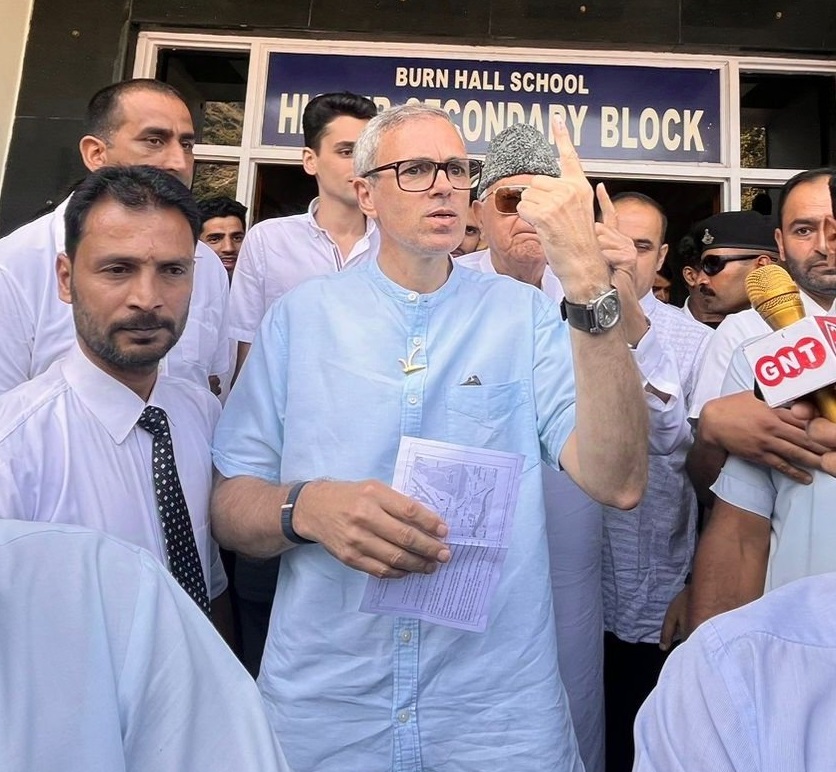BJP defeated in Kashmir, but re-elected in Haryana
The Muslim-majority territory disputed with Pakistan returned to the polls after ten years (and Modi’s unilateral repeal of its special autonomy under the constitution), with Omar Abdullah's National Conference winning the most seats. But Prime Minister Modi’s party proved opinion polls wrong and won a third consecutive mandate in the northern state next to Delhi, again beating the Congress.
Delhi (AsiaNews) – The Hindu nationalist Bharatiya Janata Party (BJP) has won the state election in Haryana for the third consecutive time, but was defeated in the very sensitive vote in Jammu & Kashmir. Historically disputed with Pakistan given its large Muslim population, the territory returned to the polls for the first time since Indian Prime Minister Narendra Modi scrapped its special autonomy in 2019.
The first round of voting thus ended with a substantial tie. Union election last June returned Prime Minister Modi to power for a third time but with fewer seats, so that he now needs the support of some allies to govern at the national level.
Despite holding power in the outgoing administration, the BJP’s victory in Haryana could not be taken for granted on the eve of the election. In fact, exit polls had assigned the victory to the Indian National Congress (INC), the main opposition force.
Instead, Nayab Singh Saini will lead the government of this northern state that lies next to the capital New Delhi and is home to some 28 million people.
Celebrating his victory, Saini immediately credited Modi for his victory. “We are moving forward under his leadership. He spoke to me and gave me his blessings. I had faith that the poor, farmers, and youth of Haryana would bless me,” he said.
Different story in Jammu & Kashmir. Despite the changes introduced in the distribution of seats to give Jammu (where Hindus are the majority) greater weight than in the past, the opposition led by the National Conference (NC), a local party allied with the INC, won.
Its leader, Omar Abdullah, who had led the state government from 2009 until 2015, will serve again as chief minister, after the territory was administered directly from Delhi after 2018.
“Efforts were being made,” Abdullah said, to “finish the National Conference party since the last five years,” but “those who tried to finish us have lost themselves”.
It should be noted that following the repeal of Article 370 which guaranteed Kashmir special autonomy, the new local government will have limited powers in a number of areas, such as education and taxation.
During the election campaign, the coalition between the NC and INC openly called for the restoration of the state’s former autonomy, and such a demand is likely to lead to more bitter feuds with the central government in New Delhi.
23/02/2024 19:29







.png)










